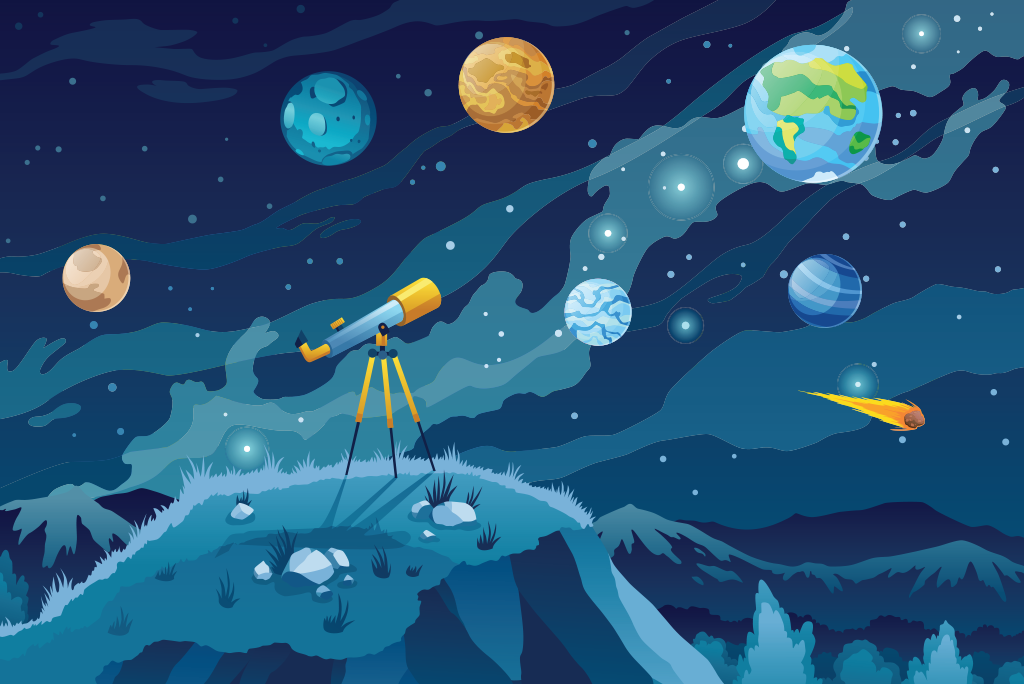It’s Global Astronomy Month! (April)

Astronomy is the study of everything beyond Earth. This includes all the things we can see when we look up at the sky, like the sun, moon, and stars. It also includes all the stuff we can’t see, like dark matter— which is matter that does not absorb, reflect, or emit light.
Humans have been studying the stars for as long as we have been looking up at the sky. However, we didn’t begin to truly understand our universe until the field of astronomy emerged about 500 years ago during a period known as the Renaissance.
Who Were the First Astronomers?
Astronomers are people who use math, chemistry, and physics to understand how the universe works. Before the first Renaissance astronomers, people incorrectly believed that the sun revolved around Earth.
In the 16th and 17th centuries, three astronomers made a number of theories and key discoveries that challenged this belief. In the 1500s, the Polish astronomer Nicolaus Copernicus revealed how Earth and other known planets move around the sun by correctly observing their order and orbital periods. Then in the early 1600s, German astronomer Johannes Kepler theorized that planets move around the sun in elliptical orbits. This discovery changed our understanding of how seasons work. Around the same time, the Italian astronomer Galileo Galilei began observing planets with the newly invented telescope. This revolutionary piece of equipment helped confirm Copernicus’s theory. Galilei also discovered Jupiter’s four moons and sunspots, which are dark spots caused by disturbances on the sun’s surface.
Perhaps the most famous astronomer of the past century was the British theoretical physicist and cosmologist Stephen Hawking. Hawking is famous for a number of revolutionary theories, most notably that black holes emit radiation.
From the discovery of foreign suns, exoplanets, and distant galaxies, to the exploration of Mars and much more, our understanding of the universe is far more advanced than ever before!
Celebrate Global Astronomy Month!
Interested in learning more about our universe? This month, Global Astronomy Month, is the perfect time to start looking to the stars.
Held every April, Global Astronomy Month aims to get the public interested in astronomy. A flagship program of Astronomers Without Borders, Global Astronomy Month holds a number of programs and events throughout April. Check out the movement’s website to learn more.
























